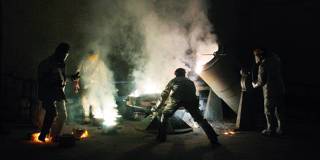If upcoming elections in the United States and Iran result in victories for the extremes, then the unproductive mutual hostility that has marked bilateral relations for most of the past 40 years will likely deepen. But should more moderate voices prevail, there will still be a chance to unlock Iran’s rich peaceful potential.
MADRID – Almost a millennium ago, one of the most renowned Persians in history, Omar Khayyam, was born in the city of Nishapur in present-day Iran. In the West, Khayyam is known mainly as a poet, owing to the translation of his most important works into English in the nineteenth century. But, in his time, he forged his reputation mostly in mathematics and astronomy. In fact, the practice of representing the unknown in an equation with an x is thought to derive from Khayyam himself. He referred to unknowns as shay (“thing” in Arabic), a term that in old Spanish was transcribed as xay, from which supposedly emerged the now universally used x.

MADRID – Almost a millennium ago, one of the most renowned Persians in history, Omar Khayyam, was born in the city of Nishapur in present-day Iran. In the West, Khayyam is known mainly as a poet, owing to the translation of his most important works into English in the nineteenth century. But, in his time, he forged his reputation mostly in mathematics and astronomy. In fact, the practice of representing the unknown in an equation with an x is thought to derive from Khayyam himself. He referred to unknowns as shay (“thing” in Arabic), a term that in old Spanish was transcribed as xay, from which supposedly emerged the now universally used x.